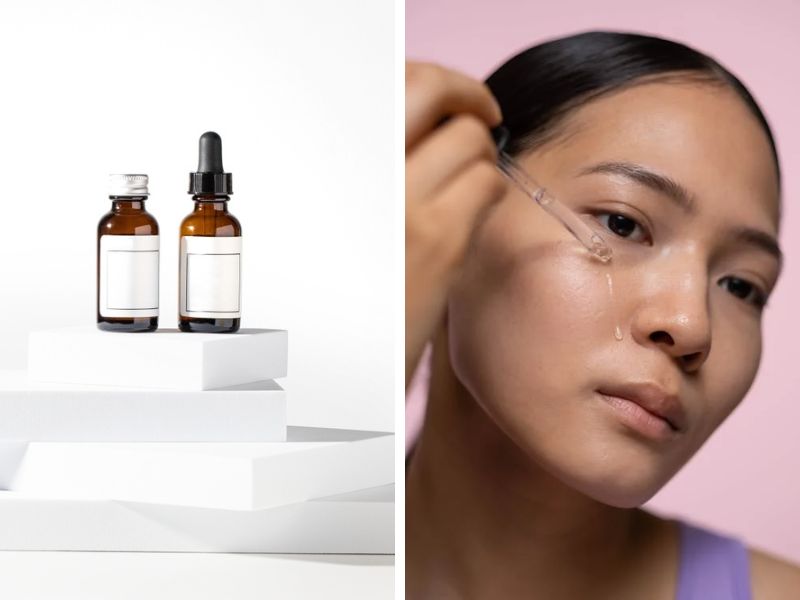Every every week, there seems to be a brand-new trendy ingredient for skin care. The one that’s now gaining attention is copper peptides, which assert several advantages, including promoting collagen, eradicating acne scars, and even preventing muscular contraction from preventing wrinkles. Does this substance, however, really work as well as brands claim? Who is most likely to gain from it?

Image Credit: Shutterstock/vasanty & Pexels/Ron Lach
Copper Peptides
Peptides come in many different forms, including those that act as carriers or as enzyme inhibitors, among others. Carrier peptides for copper are made of proteins with amino acids as the building blocks. Proteins provide the structure and support of our skin. These decline as we become older, like many other things.
Our skin naturally contains peptides that function as alarms. They serve as cues for our skin to make more collagen where it is most needed. A copper peptide is a carrier peptide that transfers trace minerals to the skin.
Benefits
They offer a range of advantages, from promoting collagen to even reducing muscle contraction to delay the appearance of wrinkles.
The production of collagen and elastin is increased by copper peptides, which can help with skin texture, firmness, and the visibility of fine lines and wrinkles. Additionally, they encourage the synthesis of glycosaminoglycans, which, like hyaluronic acid, aid in hydrating and plumping fine wrinkles while increasing the skin’s hydration.
Although copper peptides have antioxidant qualities, it is wrong to regard them as a substitute for vitamin C.

Image Credit: Pexels/Mikhail Nilov
Adding Copper Peptides To Your Routine
Apply a moisturizer twice daily, morning and night, or just at night, if your skin doesn’t require the extra moisture in the morning, depending on the consistency of the product, the climate, and your lifestyle.
Copper peptides are typically sold in serum form; therefore, applying them after cleansing and moisturizing is best. As copper peptides promote the skin’s hydrating process, experts advised substituting this serum for a hyaluronic acid serum.